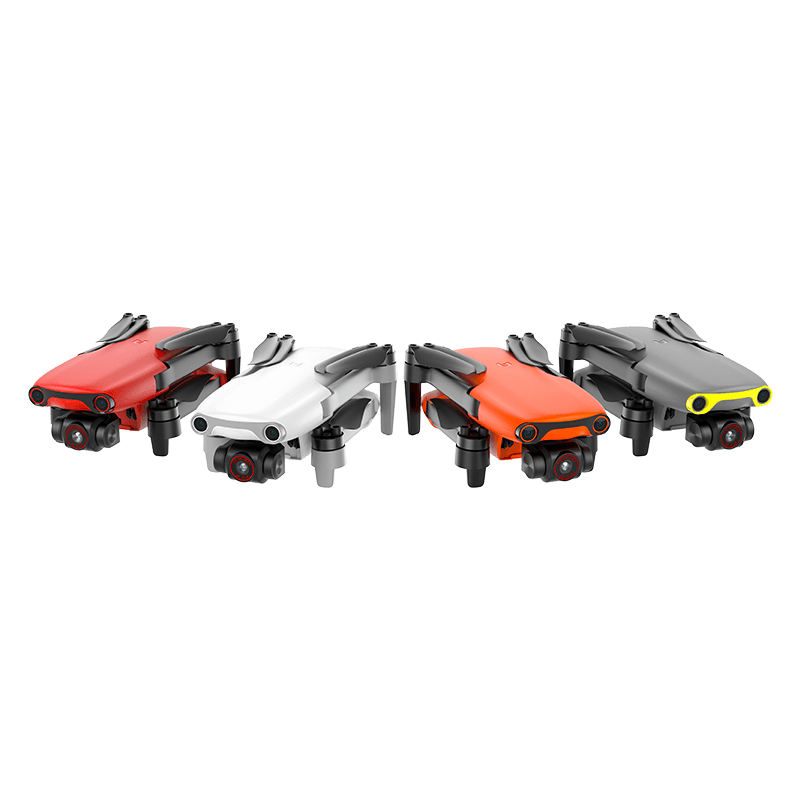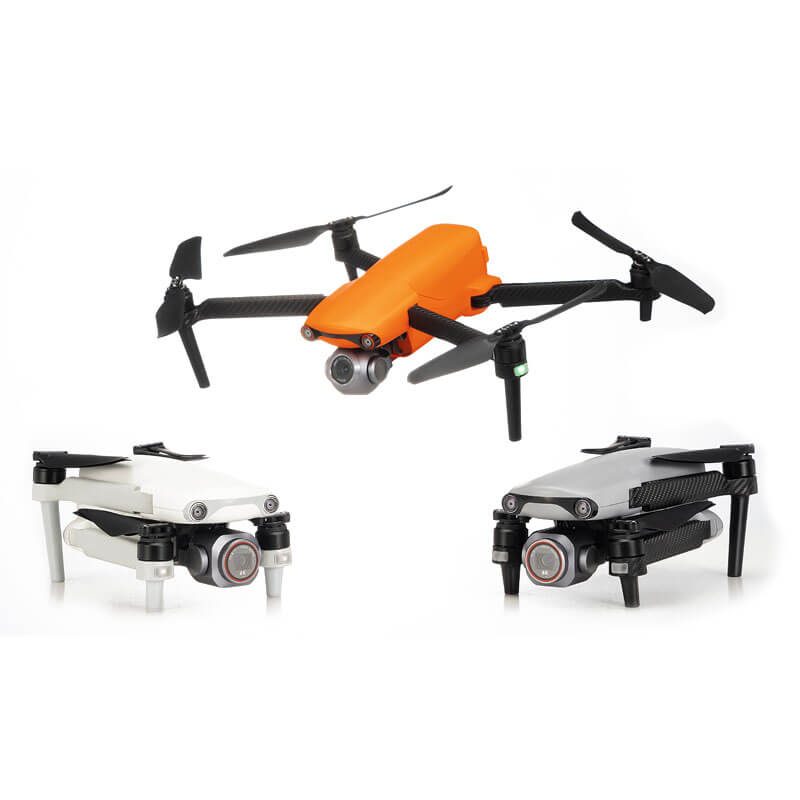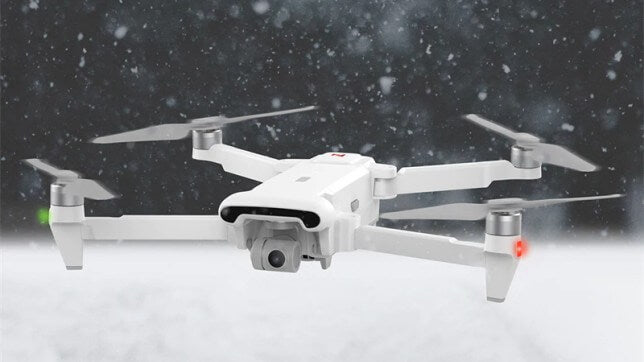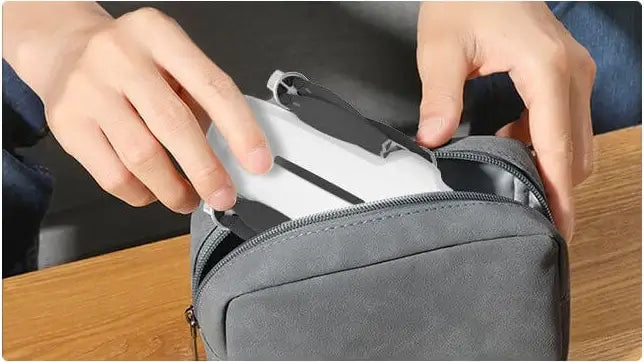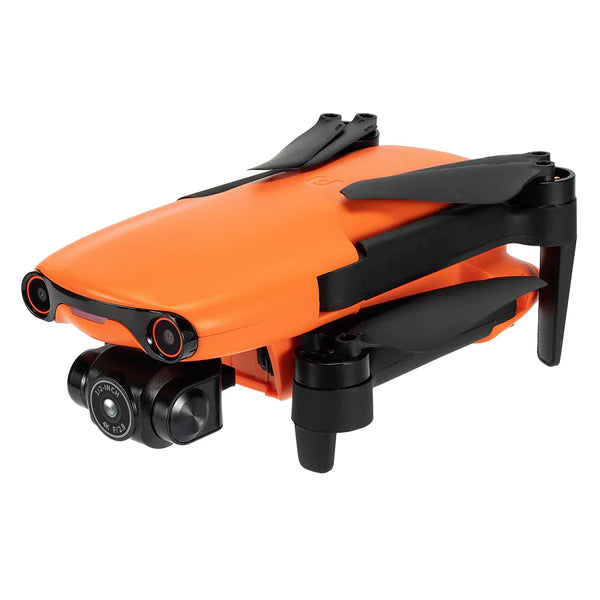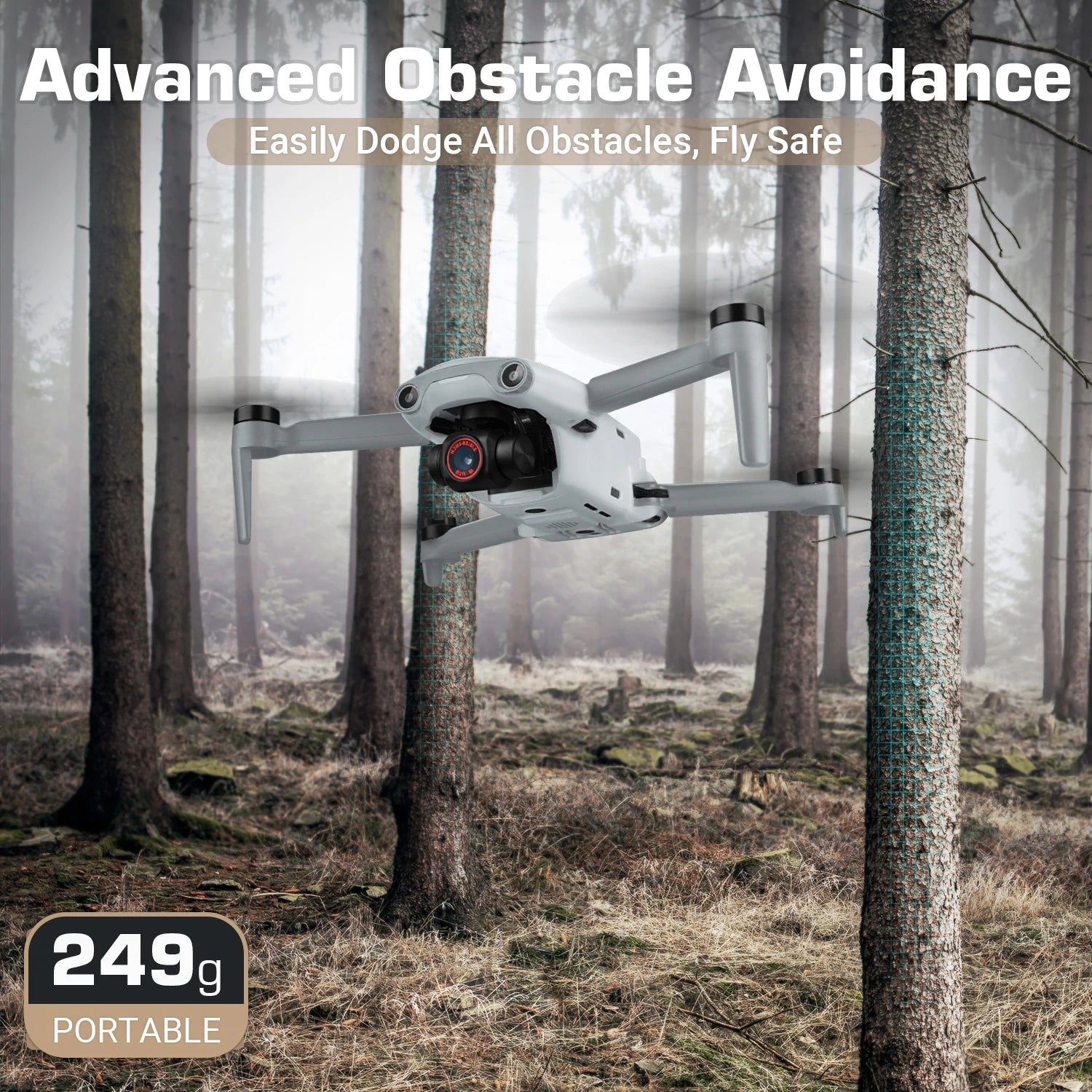Drones are also very popular in the field of aerial photography. Whether you're a professional or a hobbyist, you can see the appeal of capturing high-quality images from a whole new perspective. Drones can get you to many places you can't reach on foot, and the opportunities for creative photography are enormous. Many consumer drones were developed to aid commercial photography and videography.
After adding a gimbal to the drone, it stabilizes the camera for better photos, giving you clear and crisp images. With features like live Wi-Fi streaming, you can also get a real-time first-person view of the drone's movements! On the concept of flying camera, we provide you with a reference comparison of two drones, the candidate in the small drone, Autel Nano+ vs DJI Mini2.
Comparison of Foldable Drones under 250 Grams

Both the Autel EVO Nano and DJI Mini 2 weigh 249 grams. In terms of size, the EVO Nano (140×90×50mm when folded) is only 4mm longer than the Mini 2. But at 264 x 310 x 50mm when unfolded, the Evo Nano has a much larger wingspan, and you could say it has better stability in the wind. Both drones have a wind resistance rating of 5. In comparison, the DJI Mavic Air 2 weighs 570g and measures 180×97×84mm when folded. It also has class 5 wind resistance.
Drone Body Color Comparison

The Mini 2 is only available in battleship gray, which is firstly boring and drab and secondly difficult to see in the clouds. In contrast, the Evo Nano+ is available in four colors—a similar dark gray, pure white, and a rather bright bright red and delicious orange. Orange seems to be the color of choice for most buyers because it's easy to spot even from a few hundred meters away. And, in addition, the Evo Nano+ appears to be a gorgeous orange boot, a color that most customers love.
Drone under 250g Realize Obstacle Avoidance Function

The obstacle avoidance capabilities of the Evo Nano+ are cause for celebration, as the similarly sized DJI Mini 2 lacks obstacle avoidance at all. Somehow cramming extra obstacle avoidance weight into a drone under 250 grams is the stuff of science fiction and one of the EVO Nano+'s key strengths.
Drone Camera Spec Comparison - Autel EVO Nano vs DJI Mini 2 vs Mavic Air 2
|
|
Nano plus |
Mini 2 |
Mavic Air 2 |
|
CMOS |
1/1.28” |
1/2.3” |
1/2” |
|
RYYB Design |
YES |
NO |
NO |
|
Photo |
50MP |
12MP |
48MP |
|
Video |
4k/30fps HDR |
4k/30fps |
4k60fps |
|
Focus |
PDAF+CDAF |
Fixed focus |
Fixed focus |
|
Zoom |
1~16 times |
2~4 times |
4 times |
|
Aperture |
F/1.9 |
F/2.8 |
F/2.8 |
Most casual flyers will be very happy with the picture quality of the Mini 2, but the EVO Nano+ comes with an HDR mode that adds a 4k camera that shoots up to 60fps for improved clarity and overall resolution. The Evo Nano's image quality is also easily on par with the DJI Mavic Air 2, but it's not quite there compared to the newer DJI Air 2S, which remains our current favorite for cinematographers.
From a specs standpoint, the Autel Evo Nano+ shoots video at multiple high resolutions - 4K at 30 frames per second, 2.7K at up to 30fps, and 1080p at up to 60fps. The Mini 2, on the other hand, can also shoot 4K at up to 30fps, but its 2.7K setting is capable of shooting at up to 60fps. Note that this is only useful if you want to slow down the footage in post-production. In contrast, the Autel Evo Nano plus also adds a PDAF + CDAF autofocus system for moving subjects. Its large aperture (f/1.9) helps with noise reduction. Both drone models feature a three-axis gimbal for solid image stabilization. It's worth pointing out that the Autel Evo Nano+ can track moving objects for subject shots, lock onto the center of the frame, and it sounds great.
Both the DJI Mini 2 and Mavic Air 2 hit 720p resolution. Surprisingly, the little EVO+ Nano beats both of them with an astonishing 2.7K resolution, up to 1km, over 1080p. This equates to a significantly sharper image on the phone, making it easier to see finer details on the ground and ahead.
In the same size, the drone camera specifications of Autel Nano+ are much higher than Mini 2, even close to Mavic Air 2. Compared with Mini 2, it also adds a three-way obstacle avoidance function. Therefore, I prefer to choose Autel Nano+ drone, my first choice for flying camera.

